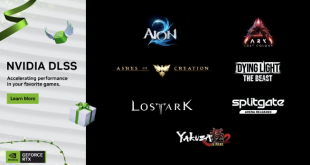There's been a lot of talk recently about used games, about loaning games, renting games, borrowing games, trading games – the whole second hand game market has been up for scrutiny. You've had Microsoft looking to kill it then backpedaling, you've had developers discussing aggressive GameStop tactics, reams and reams of comments on our Facebook page and a look at the environmental impact of any sort of crackdown. Gamers have of course, fallen on the side of “don't mess with our used games,” whilst developers often come down hard on the industry, especially Gamestop. One argument they often use though, is that games could and would be cheaper if we killed used gaming, but we've not heard much from publishers in this matter.
It's a shame too, as during the whole back and forth mob riot that was the XBONE controversy, if EA, Square Enix, Activision or any of the other giants had come out and said, “we know you like used games, but if you run with us on this, we'll drop prices by a third,” it would have made a big difference.
According to the Wired report on used gaming, that's the sort of price drop we'd need to see to make a difference – and we'd deserve it too, as many new game buyers are only able to do so because they topped up their personal funds with a trip to CEX or GAME to trade in something they'd finished playing.

Guaranteed to play, unlike some new games with restrictive DRM.
I think it's likely that there's a reason none of the publishers announced price drops with the next-gen: because none of them would have done it. When was the last time in any industry, let alone the AAA gaming one, that you heard a company voluntarily cut into its profits for the benefit of the consumer?
This is something that publishers should think about doing though, especially those considering putting measures in place on the publisher controlled DRM landscape of the PS4. Now don't get me wrong, I'd rather they didn't put any restrictions on anyone's gaming. I'm a GoG and Humble Bundle fanboy through and through, but if any publisher is reading this and is thinking of using online passes or always-on checks for their next-gen console games, how about a price cut?
If those publishers are so sure that by cutting out used game sales they'd make much more money, how about you announce your intention to pass the savings on to us? It would certainly go a long way to ingratiating you with an increasingly disillusioned and distanced public.
KitGuru Says: So what do you guys think? If it came down to used games being ended and there's the chance for publishers to save themselves and us a bit of money, which out of them all might make the jump? Paradox might. Perhaps. But I can't see any of the giants doing it, can you?
 KitGuru KitGuru.net – Tech News | Hardware News | Hardware Reviews | IOS | Mobile | Gaming | Graphics Cards
KitGuru KitGuru.net – Tech News | Hardware News | Hardware Reviews | IOS | Mobile | Gaming | Graphics Cards



I there were no used game sales, release prices wouldn’t drop, but long term prices likely would, because it would benefit the publishers. Currently gamers willing to pay full price are served by the publishers, while those who want to pay less buy used games. If there were no used games, people who aren’t willing to pay full price will wait for the price to drop, like they do on the PC. If the publisher then drops the price, they’ll make money from those who have waited, so it makes sense for them to do that. In a market with used games a lot of these game buyers will have already bought a used game, so there’s less profit in dropping the price.
The issues here are centuries old and in most Western countries long since settled. The doctrine of First Sale (granting the consumer the unrestricted right to resell / gift / loan their purchased goods as desired) has been law of the land in the US since early 1900s, and even before that as common law precedent. Video game publishers can offer no new arguments that weren’t made decades ago by book publishers, or more recently by movie studios. Those industries have been doing fine since and so will the games industry.
(Side note — I’m aware that there’s an attempt to categorize these video games as “licensed” not sold, despite that they are mass marketed to minors who can not legally form an agreement, who have no input to the terms of the license/agreement, and can not reasonably be expected to even understand the terms in the agreement. Courts are right to recognize that each such transaction looks a lot more like a regular sale than a custom business contract license and treat it as such.)